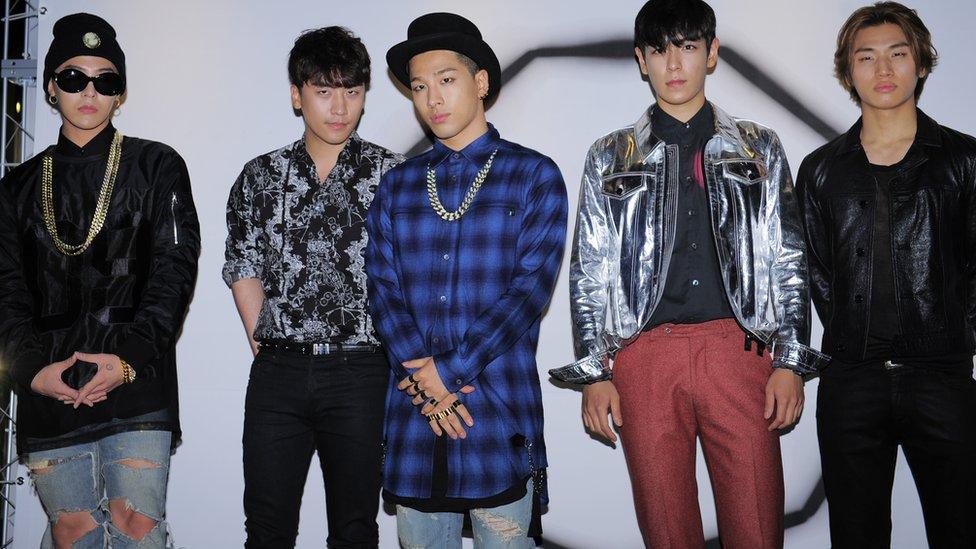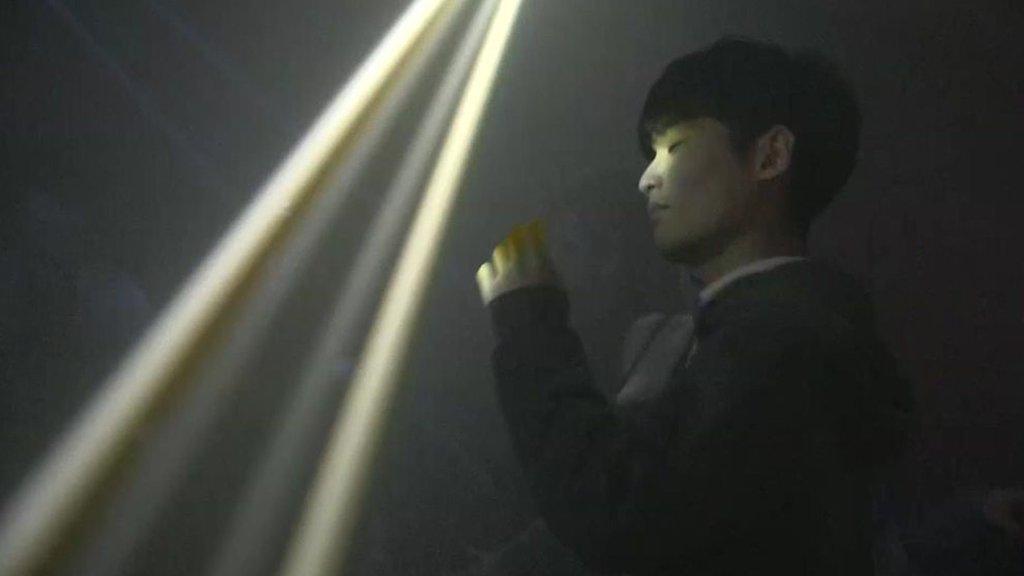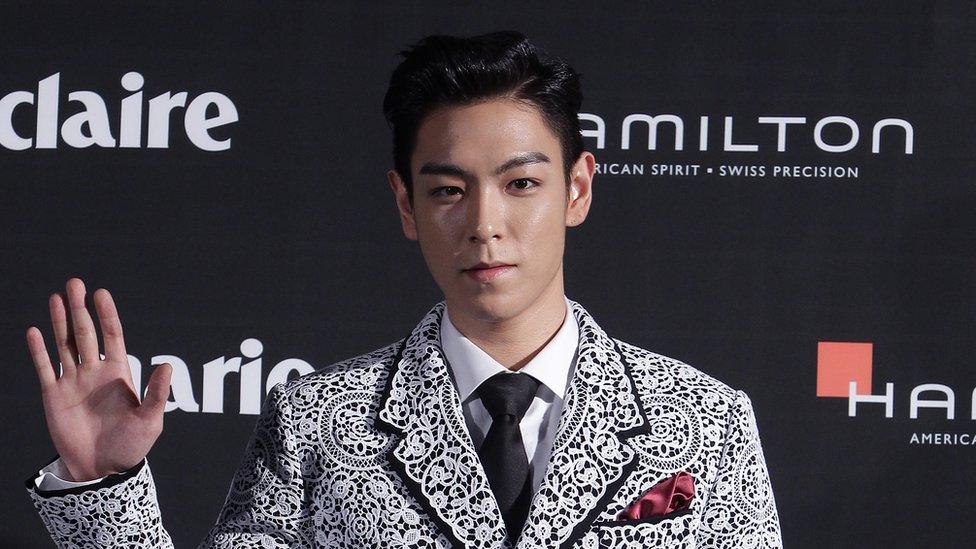Big Bang: K-pop star quits showbiz amid 'sex bribery' claims
- Published

Seungri (left) is accused of trying to procure sex workers for his business investors (file picture)
One of South Korea's most successful boyband stars has announced his retirement from showbiz, a day after he was charged with supplying prostitutes to business investors.
Seungri will be leaving the five-piece group Big Bang, who have sold over 140 million records since their 2006 debut and are known as the "Kings of K-pop".
The 28-year-old wrote on Instagram: "I have decided to retire because the controversy has become so big."
He has denied procuring prostitutes.
Seungri, whose real name is Lee Seung-hyun, had already cancelled all planned engagements in February, and the March shows of his solo tour.
In a statement he apologised to his fans, and promised to "sincerely participate in investigations into all allegations".
What's he accused of?
Seungri was questioned by police in February over reports of drug-taking and sexual assault at the Burning Sun club, where he was a public relations director.
Local media reports have also linked the singer to "sex bribery" - or providing sex services to potential investors in his company Yuri Holdings, which manages his entertainment and restaurant businesses.
The lobbying is alleged to have happened at nightclubs in Seoul, South Korea's capital.
Prostitution is illegal in South Korea.
It is alleged that Seungri tried to obtain prostitutes for clients through a group chat on the messaging app KakaoTalk in 2015. Messages have emerged which appear to show him urging a staff member to make the arrangements.
He was also allegedly part of a chat where secretly-filmed sex videos were shared. The hidden camera clips were allegedly taped by another K-pop singer, Jung Joon-young. Korean broadcaster SBS reports that 10 women were filmed. Jung's agency said he would fully cooperate with police investigations.
How has South Korea reacted?
Seungri, who was once described as "the Great Gatsby of Korea" for his lavish lifestyle, has a gigantic fanbase - but some had called for him to leave Big Bang as the scandal swept the country.

Seungri also owns a global restaurant franchise
A petition surfaced last week calling for him to step aside after causing "unrecoverable damage to the group's reputation".
The singer said in his Instagram statement, external: "I have faced heavy criticism from the public for the last month and-a-half and I'm being probed by all investigative authorities in the country.
"As I've been branded as a 'national traitor', I cannot stand the fact that I'm harming others for my own sake."
A former supporter replied to the post saying: "I'm so embarrassed at myself for being your fan for the last 10 years."
Others pledged to stand by Seungri and the band. Fan @_nhungnhim29 wrote simply: "We'll never let you go."

Bigbang is one of the decade's most successful boybands, at the forefront of K-pop's worldwide spread
Shares in the Seungri's talent agency, YG Entertainment Inc, fell 15.6% on Monday, the day his retirement was announced, reaching their lowest level since November 2018.
Seungri isn't the first member of Big Bang to be embroiled in controversy, however.
In 2011, band leader G-Dragon was investigated for smoking marijuana, which is illegal in South Korea, but was released without charge.
Another member, rapper T.O.P, was handed a 10-month suspended prison sentence for marijuana use in 2017.
How big a deal are Bigbang?
In South Korea they are showbiz royalty - but their popularity has spread across Asia and the rest of the world.
In 2016, Forbes magazine named G-Dragon as the most influential person under 30 in Asia's entertainment and sports industries.
An example of the band's fame in action: G-Dragon is currently performing his two-year term of military service - which is mandatory for able-bodied men in South Korea. When it began, he got such a deluge of supportive letters that his army base ran out of paper to print them on, and fans had to be urged to show restraint.
Seungri had been expected to start his own military service on 25 March. South Korea's Military Manpower Administration confirmed on Monday that he is still expected to join the army as scheduled.
What do non-Koreans love about K-pop?
- Published21 November 2018

- Published22 October 2018

- Published13 March 2018

- Published8 July 2018

- Published9 October 2018

- Published8 June 2017
